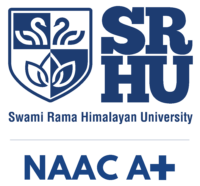Policy for Relationships with Regional NGOs and Government
November 6, 2025 2025-11-15 6:05Policy for Relationships with Regional NGOs and Government
Policy for Relationships with Regional NGOs and Government
| Approved | Board of Management on 12th January 2019 |
| Notification | Notified by Registrar vide notification No. SRHU/Reg/OO/2019-04 (i) dated 15th January 2019 |
| Reviewed / Revised | Board of Management on 29th March 2022 |
| Notification | Notified by Registrar vide notification No. SRHU/Reg/OO/2022-58 (i) dated 5th April 2022 |
| Next Review | 2025–26 |
- Short Title & Commencement
- This Policy shall be called the “Policy for Relationships with Regional NGOs and Government” of Swami Rama Himalayan University.
- This Policy shall be deemed to have come into force from the date of approval of the Board of Management of the University.
- Purpose
- The purpose of this policy is to establish a framework for building, maintaining, and managing relationships with regional NGOs and government agencies. SRHU thrives on partnerships built on ethics, trust, and transparency enabling the institution to deliver transformative programs, shape meaningful policies, share resources effectively, and create sustainable social, environmental, and academic outcomes.
- Scope
- All departments, staff, and representatives of Swami Rama Himalayan University engaged in partnerships, collaborations, or communication with NGOs and government bodies.
- All formal and informal agreements, memoranda of understanding (MoUs), joint programs, and advocacy efforts with regional stakeholders.
- Goals
- Identify and engage credible NGOs and government agencies aligned with organizational goals.
- Strengthen collaboration for program delivery, research, capacity building, and policy advocacy.
- Promote transparent and accountable decision-making in joint initiatives.
- Enhance knowledge exchange and sharing of best practices.
- Support the development of regional networks that advance sustainable development, social welfare, or educational objectives.
- Implementation Measures
- Identification and Assessment
- Conduct due diligence to identify NGOs and government bodies with aligned missions and credibility.
- Assess potential partners for capacity, reputation, compliance with laws, and track record.
- Maintain a Partner Registry with key information, past collaborations, and contact details.
- Partnership Agreements
- Formalize partnerships using Memoranda of Understanding (MoUs), contracts, or agreements outlining:
- Objectives and expected outcomes
- Roles, responsibilities, and resource commitments
- Communication and reporting protocols
- Ethical, legal, and compliance obligations
- Conflict resolution mechanisms
- Ensure all agreements are approved by relevant organizational authorities.
- Formalize partnerships using Memoranda of Understanding (MoUs), contracts, or agreements outlining:
- Collaboration and Communication
- Foster regular, open dialogue through meetings, joint workshops, or digital communication channels.
- Share knowledge, technical expertise, and resources to support mutual objectives.
- Promote co-creation of programs and initiatives with clear roles and decision-making authority.
- Compliance and Ethics
- Adhere to all relevant laws, regulations, and ethical standards when engaging with NGOs and government entities.
- Avoid conflicts of interest, favoritism, or actions that could compromise organizational integrity.
- Ensure transparency in the use of funds, reporting, and outcomes from joint initiatives.
- Monitoring and Evaluation
- Establish monitoring mechanisms to track partnership performance and progress toward objectives.
- Evaluate effectiveness of collaborations using indicators such as:
- Program impact and outcomes
- Timely delivery of commitments
- Stakeholder satisfaction
- Document lessons learned and implement improvements for future collaborations.
- Capacity Building
- Support joint capacity building for partners and organizational staff.
- Encourage knowledge sharing, training, and technical support to strengthen regional networks and program delivery.
- Identification and Assessment
- Reporting and Compliance
- Maintaining clear documentation of all interactions, agreements, and collaborative projects.
- Providing periodic reports to management and, where relevant, funders or stakeholders.
- Publicly acknowledge partnerships and contributions in communications and publications, respecting confidentiality agreements.
- This policy shall be reviewed every three years or earlier if required to accommodate new educational practices, regulatory requirements, or emerging student needs.
- The University reserves the right to interpret, alter, amend, modify, cancel or withdraw any or all provision mentioned herein above in this policy without any notice.
- In case of any dispute, the decision of the Vice Chancellor of the University shall be final and binding.

